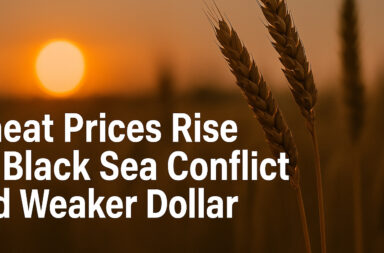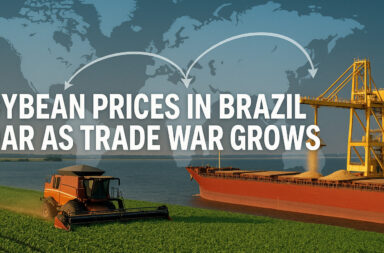What is the impact of the devastating flood on Spain’s agriculture?
Spain is experiencing one of the most severe flood disasters in its history, with heavy rainfall sweeping through Valencia, Murcia, and Andalusia.
The storms have brought unprecedented rainfall, in some areas over 400 liters per square meter in just a few hours. This downpour has left behind widespread destruction, claiming lives, derailing trains, and much more.
The disaster has also caused devastating losses to farmers.
Flood Impacts on Spanish Agriculture.
The floodwaters have submerged thousands of hectares of farmland, including vineyards, citrus orchards, and vegetable fields.
The AVA-ASAJA, a major agricultural association in Spain’s Valencia, reports that the floods have swept away crops and washed out critical infrastructure like irrigation systems, barns, and greenhouses.
The association anticipates massive crop losses and lasting impacts on agricultural productivity. In Almeria alone, more than 4,200 hectares of farmland were damaged. Rural roads have become impassable; therefore, farmers still cannot access their fields and evaluate the damage.
Flood Impact on Livestock and Infrastructure
In addition to crop losses, livestock farmers are also facing challenges. Animals such as pigs and cows have been stranded, with concerns rising over the availability of food and water. The devastation has left the farmers without the essential tools they need to recover.
As a result, the AVA-ASAJA has called for immediate government assistance to support both crop and livestock farmers as they begin the arduous process of rebuilding.
Floods Impact on Europe and Britain’s Food Supply
Spain is Europe’s leading supplier of fruits and vegetables, with Valencia and Andalusia being major production hubs for crops like oranges, tomatoes, peppers, and lettuce.
The floods pose a serious threat to these supply chains, potentially impacting grocery prices.
Spain provides about 25% of Britain’s fruit imports and 8% of its vegetable imports, so these disruptions are likely to ripple through Europe and in Britain, especially during the winter months when the continent relies on Spanish imports.
Climate Change: The Driving Force Behind Extreme Weather
The floods are part of a troubling trend linked to climate change. Spain has faced prolonged droughts, which have left the land unable to absorb heavy rain efficiently, worsening the flooding.
Experts at Universitat Politècnica de Catalunya (UPC) in Barcelona have highlighted how climate change has extended Spain’s summers and predicts that rainfall will decrease by up to 20% by 2050.
A Wake-Up Call for Global Food Security
This disaster underscores the vulnerability of global food systems to climate change.
As Spain’s farmers struggle with the impacts of floods, the consequences reach across borders. Many European nations are now looking at alternative suppliers, like South Africa and Brazil, to fill the gap, though these efforts may not completely counteract potential shortages and price increases.
This flood event serves as a stark reminder of the need for resilient food systems and policies that address the interconnected challenges posed by climate change.
In conclusion, the floods in Spain have wreaked havoc on the agricultural sector, threatening both local livelihoods and Europe’s food security.


